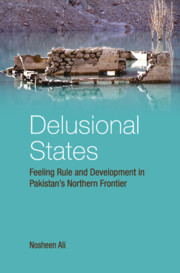Book contents
- Frontmatter
- Contents
- List of Maps and Figures
- Acknowledgements
- List of Abbreviations
- Introduction
- PART I Representation and Repression
- PART II Education and the Politics of Faith
- 3 Challenging School Textbooks: The Sectarian Making of National Islam
- 4 Sectarian Imaginaries and Poetic Publics
- PART III Saving Nature, Saving People
- Conclusion: The Great Media Game
- Bibliography
- Index
3 - Challenging School Textbooks: The Sectarian Making of National Islam
from PART II - Education and the Politics of Faith
Published online by Cambridge University Press: 05 June 2019
- Frontmatter
- Contents
- List of Maps and Figures
- Acknowledgements
- List of Abbreviations
- Introduction
- PART I Representation and Repression
- PART II Education and the Politics of Faith
- 3 Challenging School Textbooks: The Sectarian Making of National Islam
- 4 Sectarian Imaginaries and Poetic Publics
- PART III Saving Nature, Saving People
- Conclusion: The Great Media Game
- Bibliography
- Index
Summary
In May 2000, the Shia Muslims based in the Gilgit district of the then Northern Areas began to agitate against the recently changed curriculum of government schools in the region. The controversial textbooks were produced by the Punjab Textbook Board, and spanned various disciplines including Urdu, Social Studies, and Islamiat—a subject that focuses on the study of Islam, declared compulsory for all Muslim students in Pakistan under General Zia's Islamization agenda. The Islamiat texts for primary classes were deemed particularly unacceptable. Many in the Shia community felt that in these new books—written by a panel of four Sunni scholars—not only was the Shia interpretation of Islam blatantly disregarded, but the Sunni interpretation was also more starkly asserted. For example, it was argued that visual representations of performing prayers followed the Sunni style of prayer, implicitly delegitimizing the Shia way of being Muslim. Similarly, it was felt that the lives of Caliphs as well as the Prophet's Companions were extensively discussed, while those of the revered Shia Imams were barely mentioned. Such representations were deemed to undermine the faith and identity the of Shia youth. Four years after the agitation began, the ‘textbook controversy’—as it came to be called—turned into a fatal conflict involving violent confrontations between state authorities and Shia protestors, the loss of around hundred lives, a climate of heightened Shia–Sunni discord, and a constant curfew that paralysed daily life in the region for eleven months. The matter was partly resolved in April 2005, when an agreement was reached to withdraw some of the controversial textbooks, and replace them with those produced by the National Book Foundation and the NWFP Textbook Board.
Why did the issue of textbooks become so huge and consequential, and cause so much anguish? It generated the most potent and long-standing Shia collective mobilization against the state that Pakistan has witnessed in the last three decades and, at the same time, resulted in the worst episode of Shia–Sunni hostility in Gilgit-Baltistan's recent history. As such, it encompassed much more than what the term ‘controversy’ might suggest. In this chapter, I explore the nature and consequences of this critical event, and use it as a lens to examine the politics of sectarianism, education, and state-making in contemporary Gilgit-Baltistan and Pakistan.
- Type
- Chapter
- Information
- Delusional StatesFeeling Rule and Development in Pakistan'S Northern Frontier, pp. 113 - 152Publisher: Cambridge University PressPrint publication year: 2019

